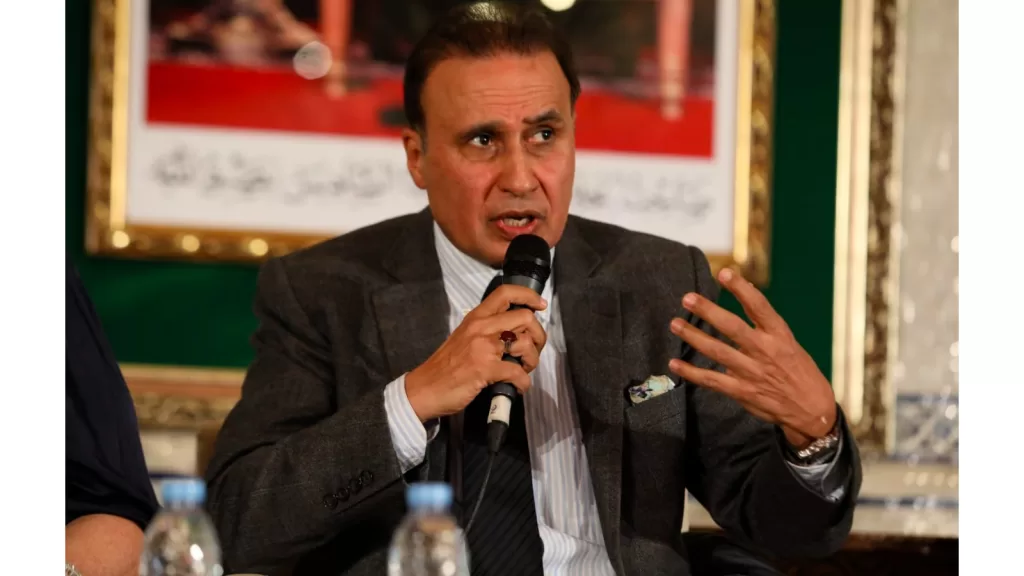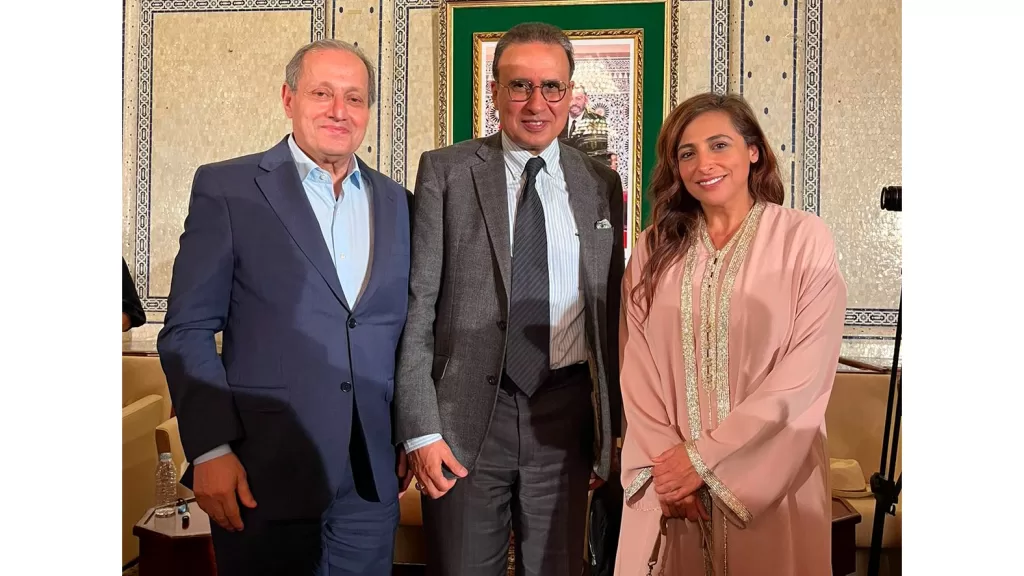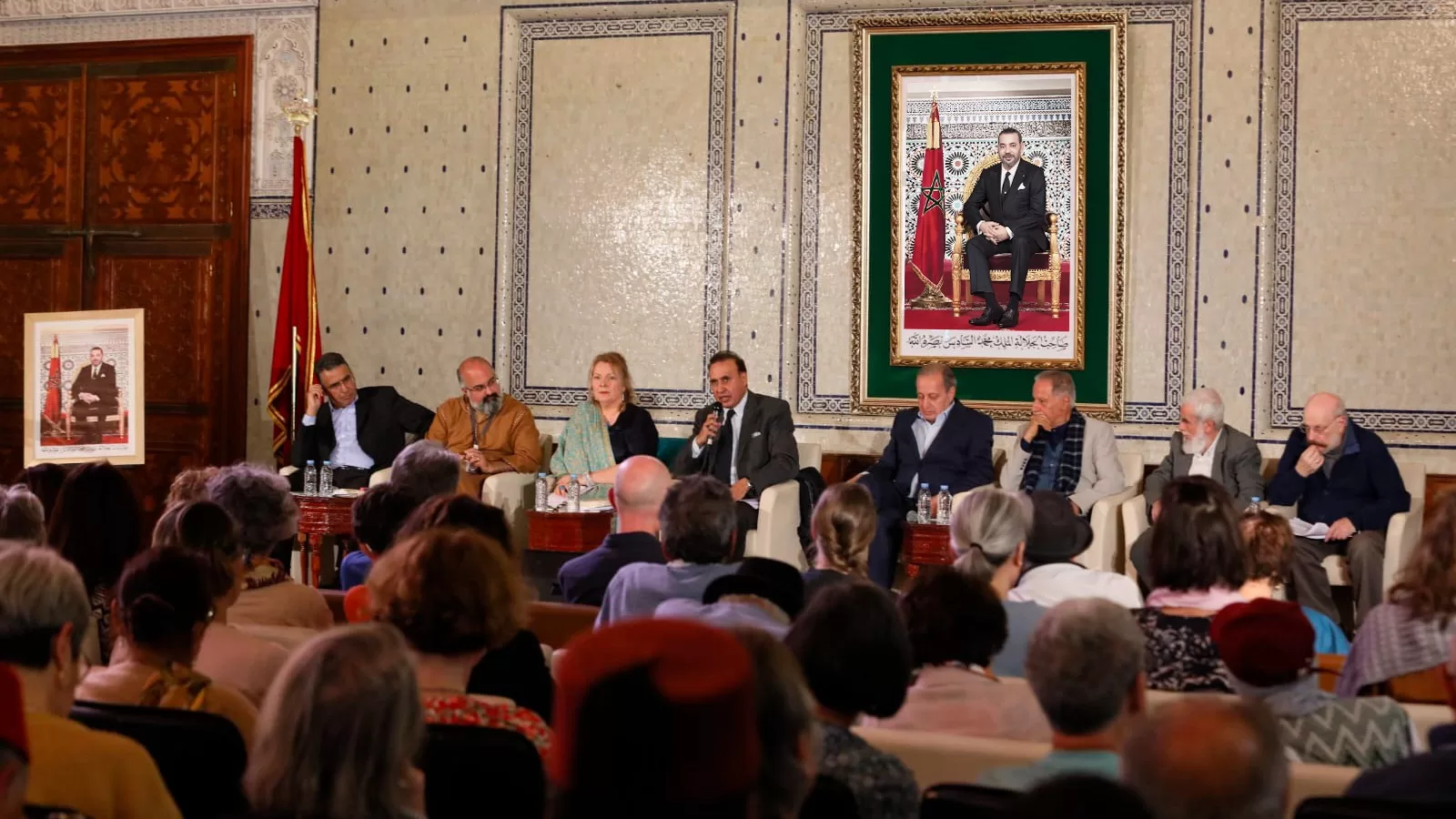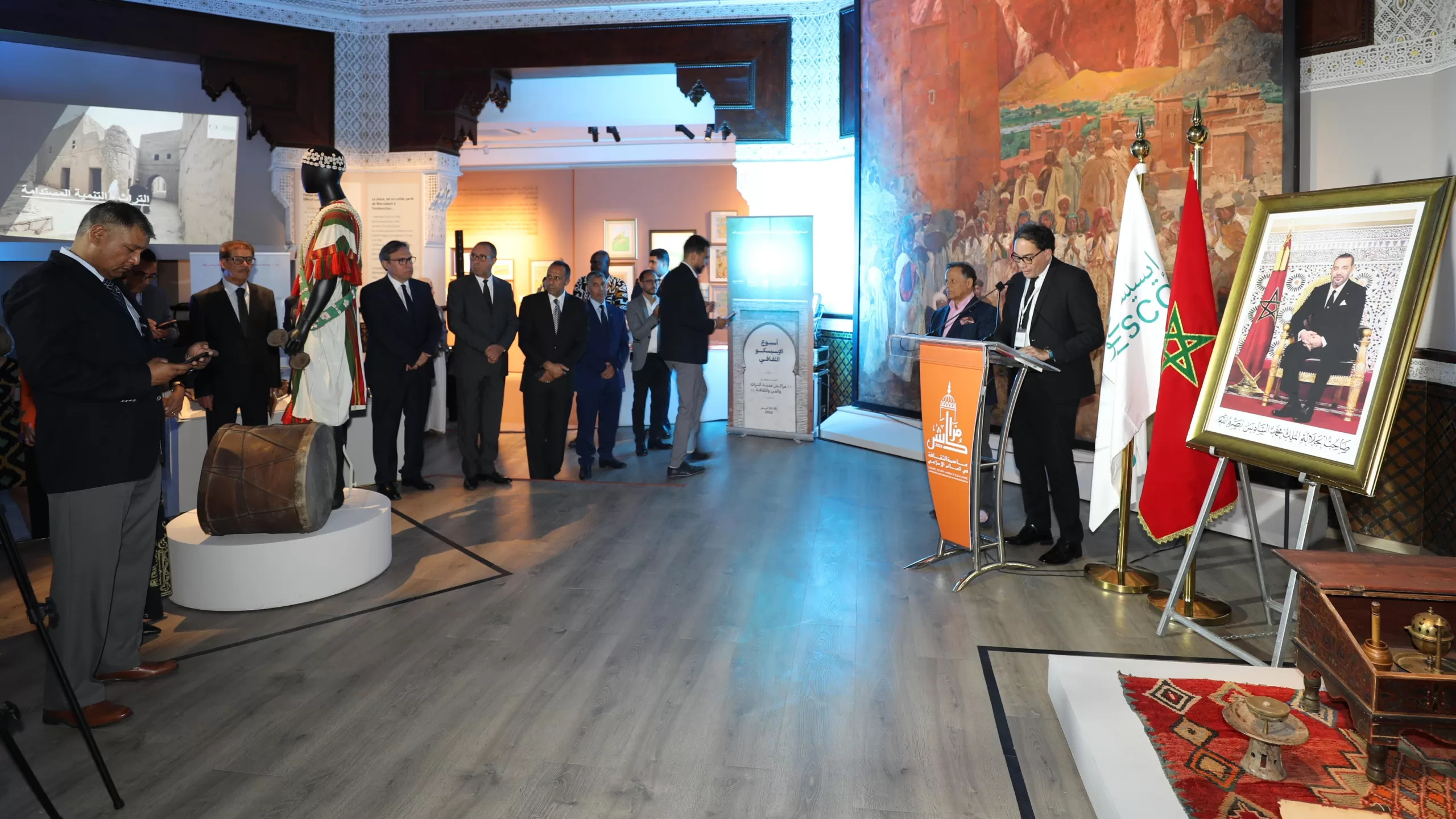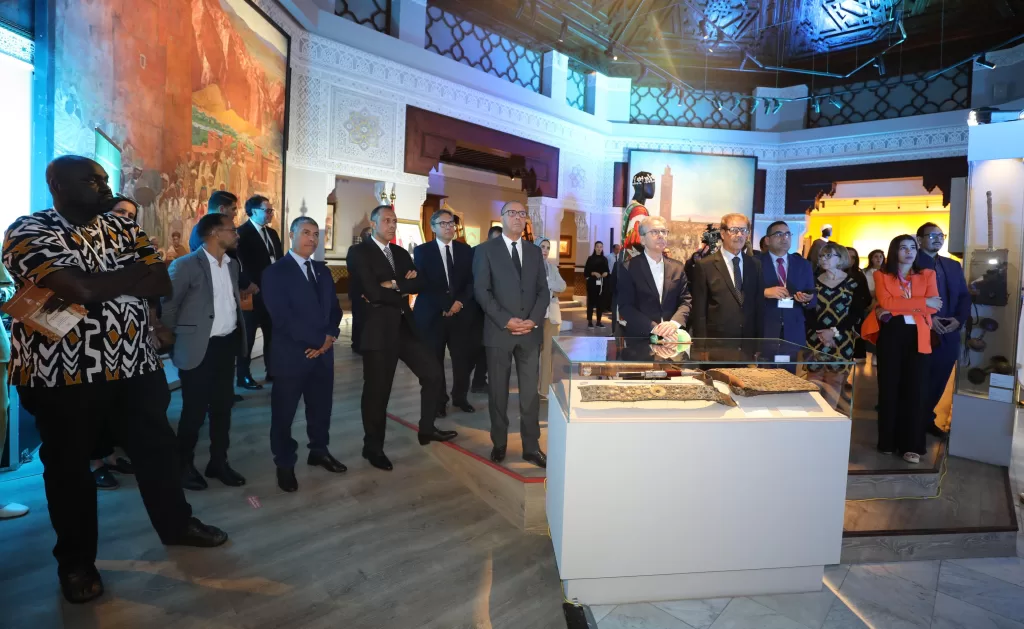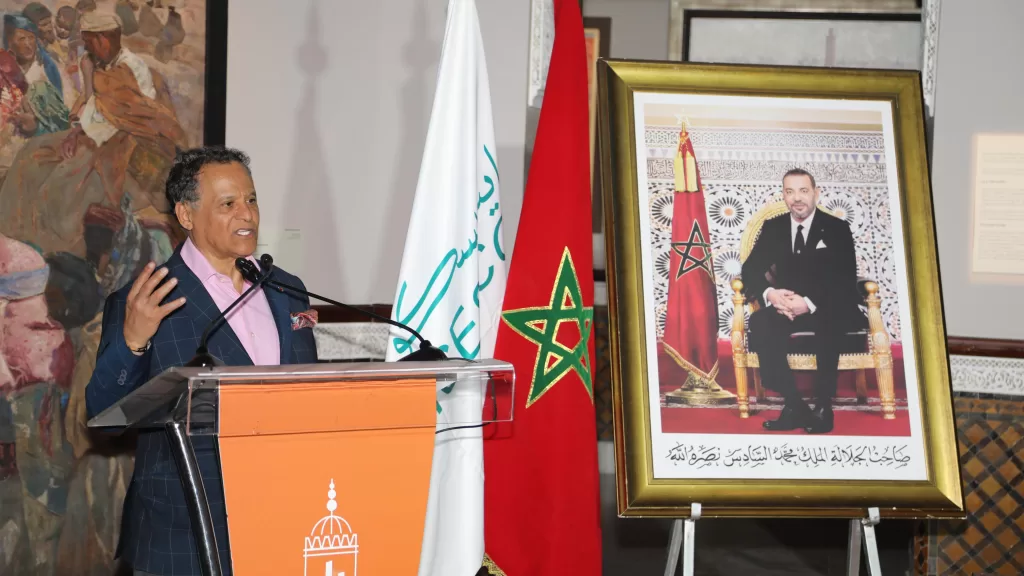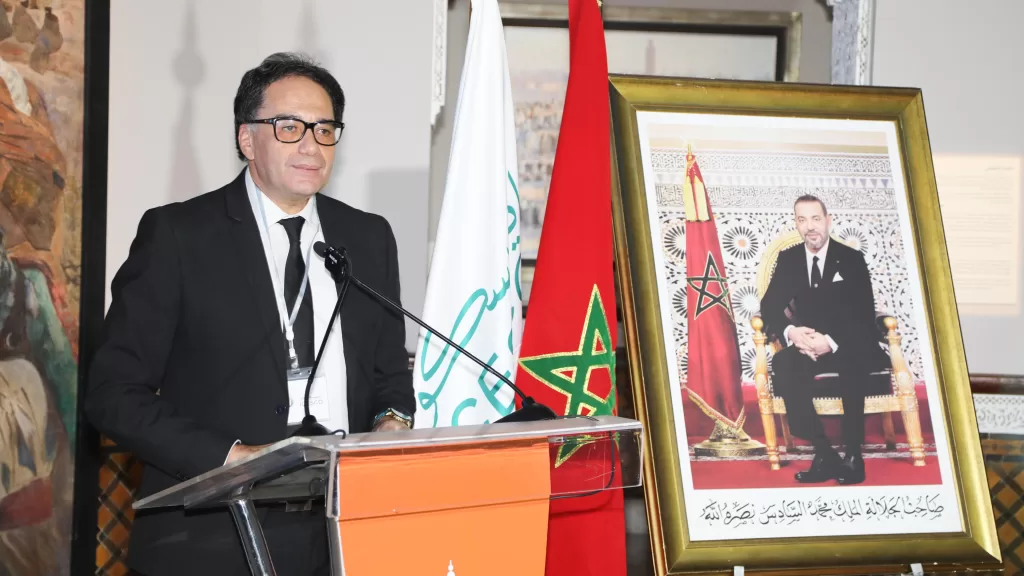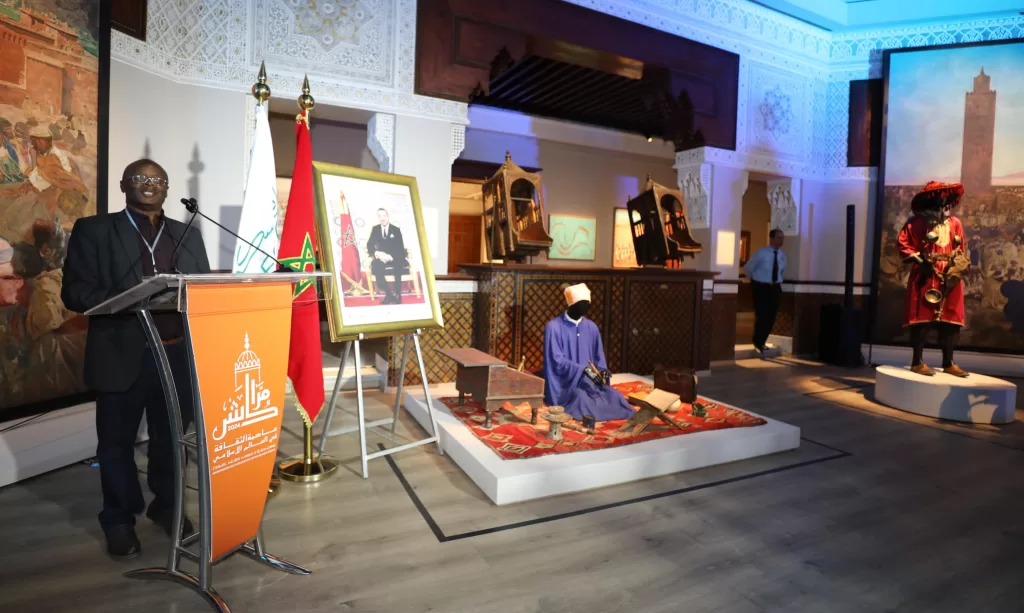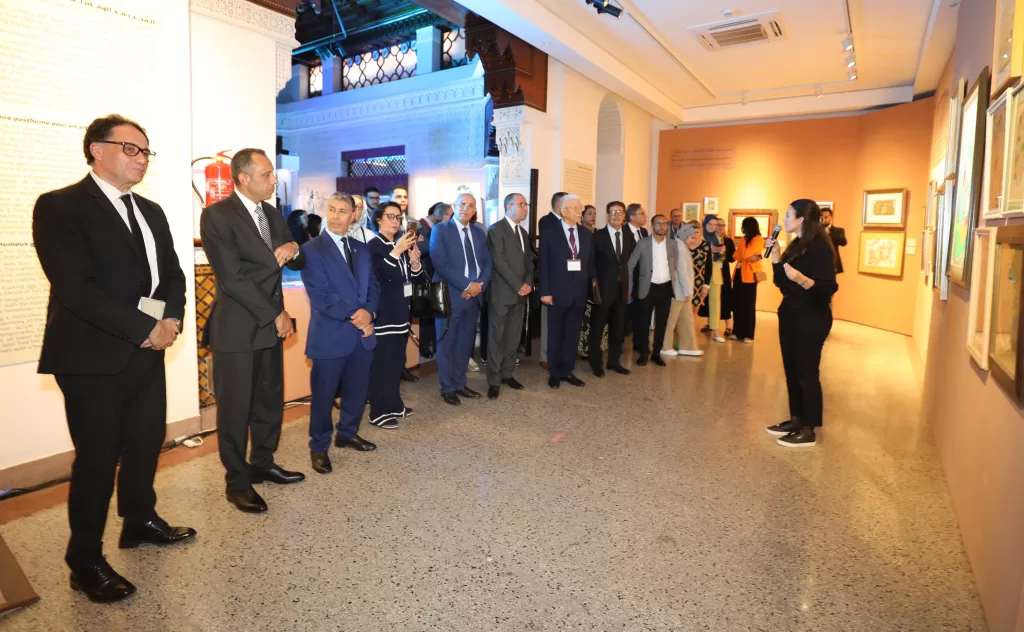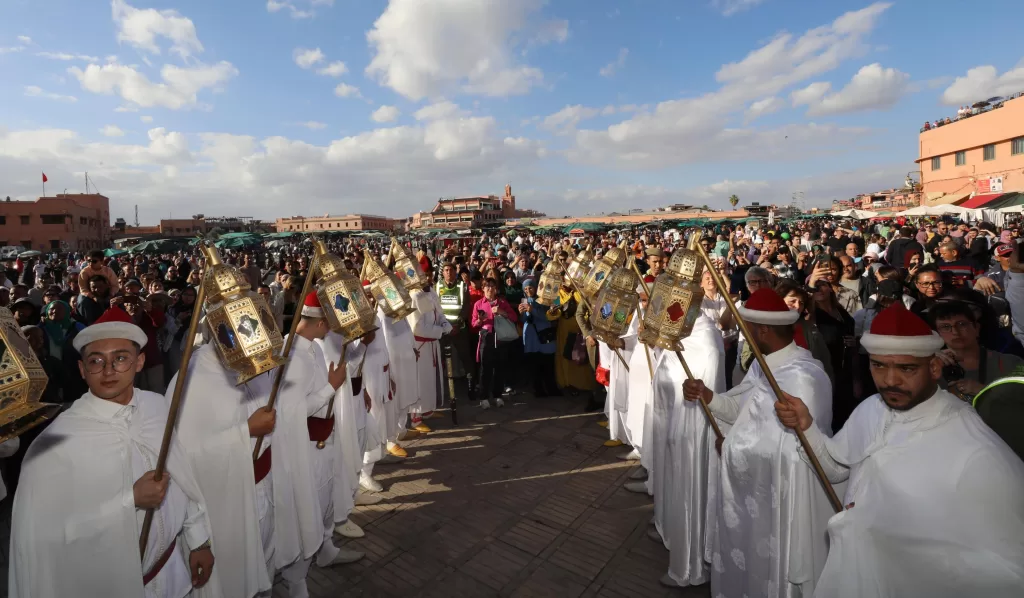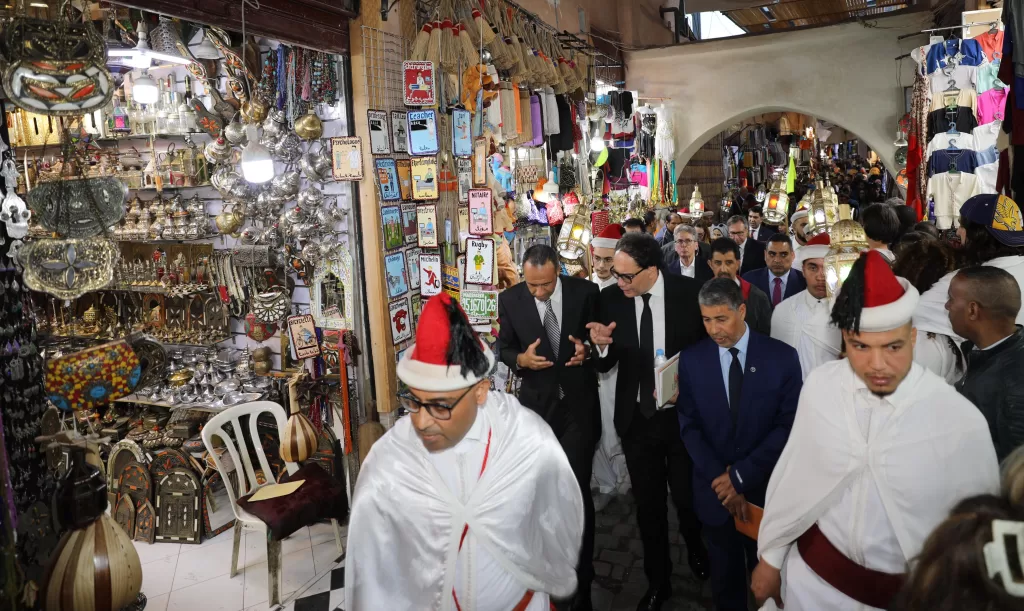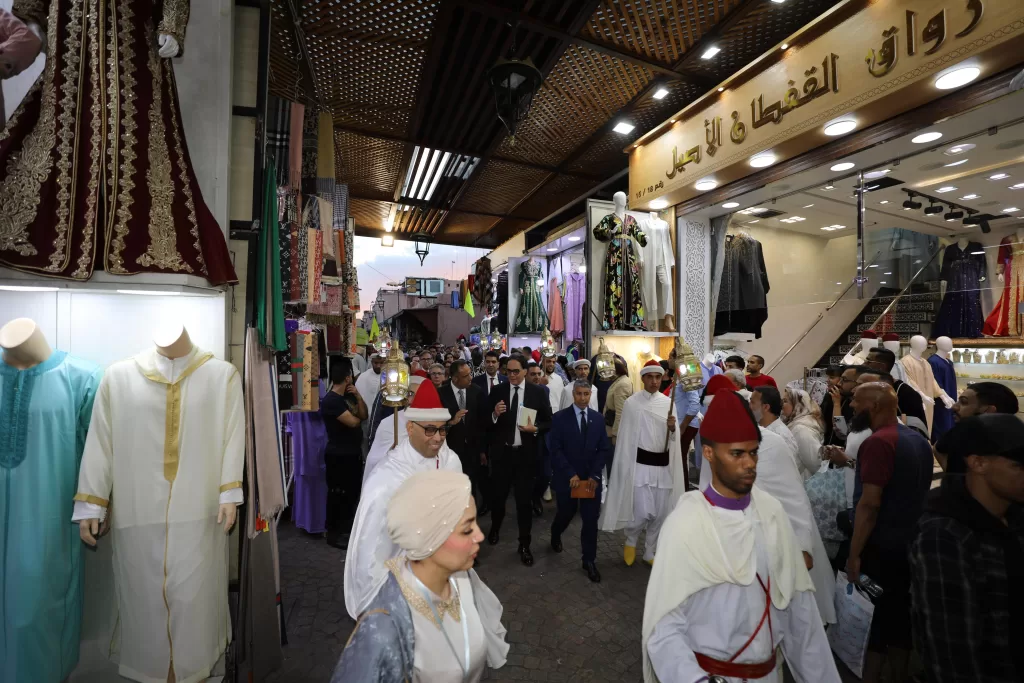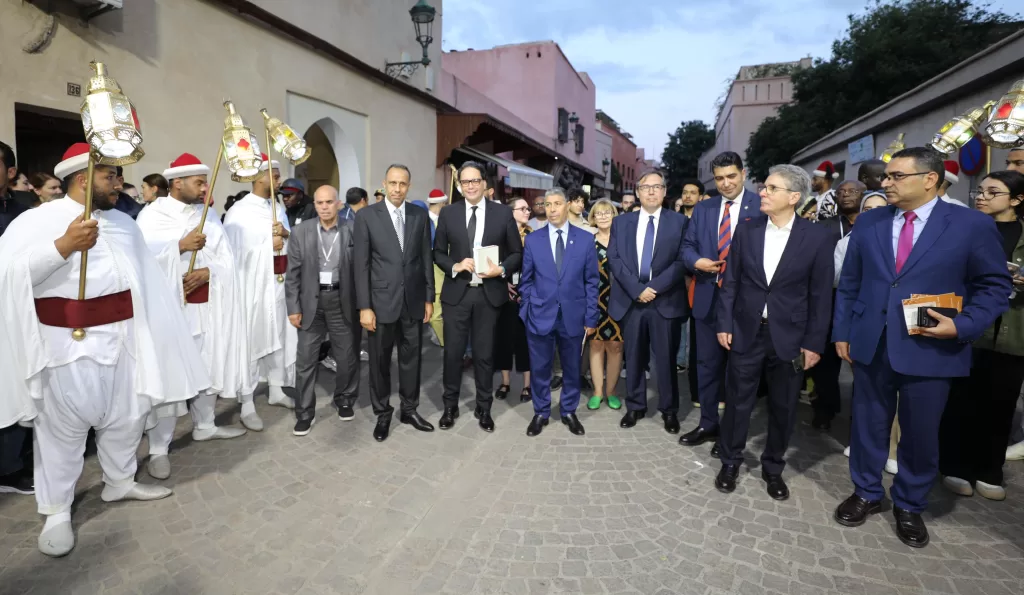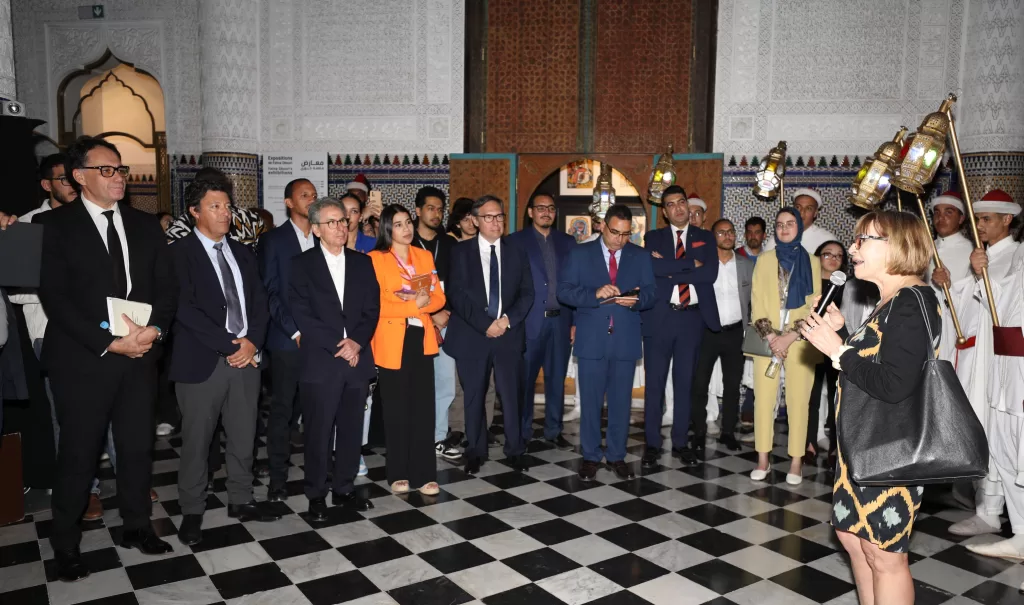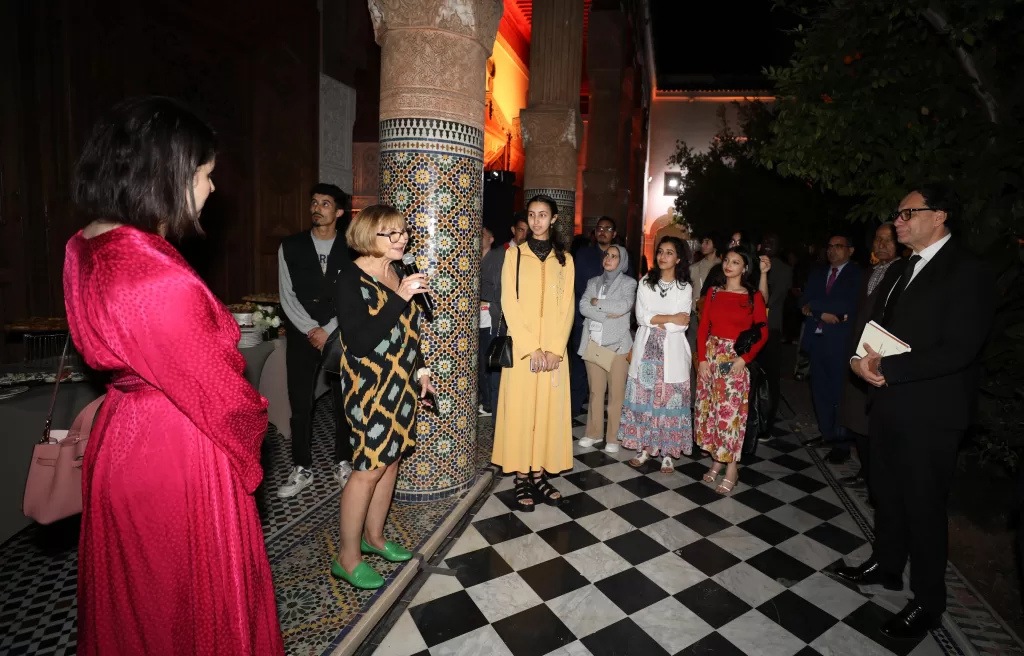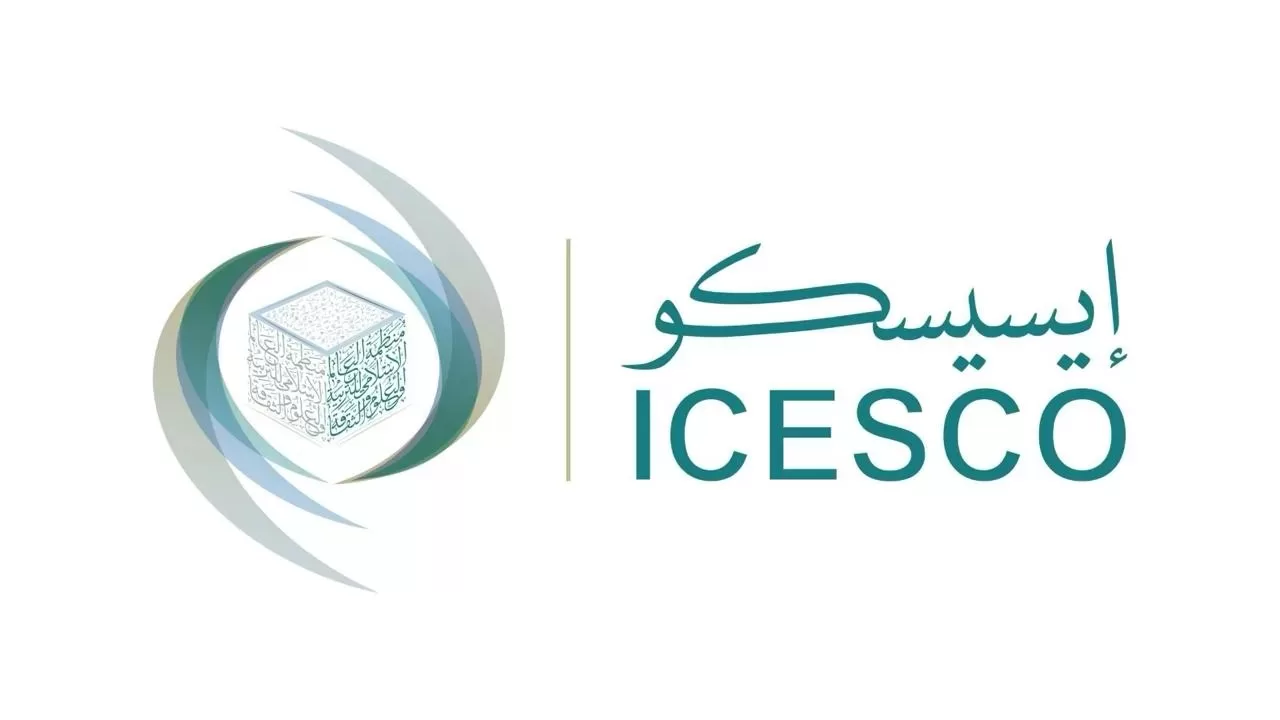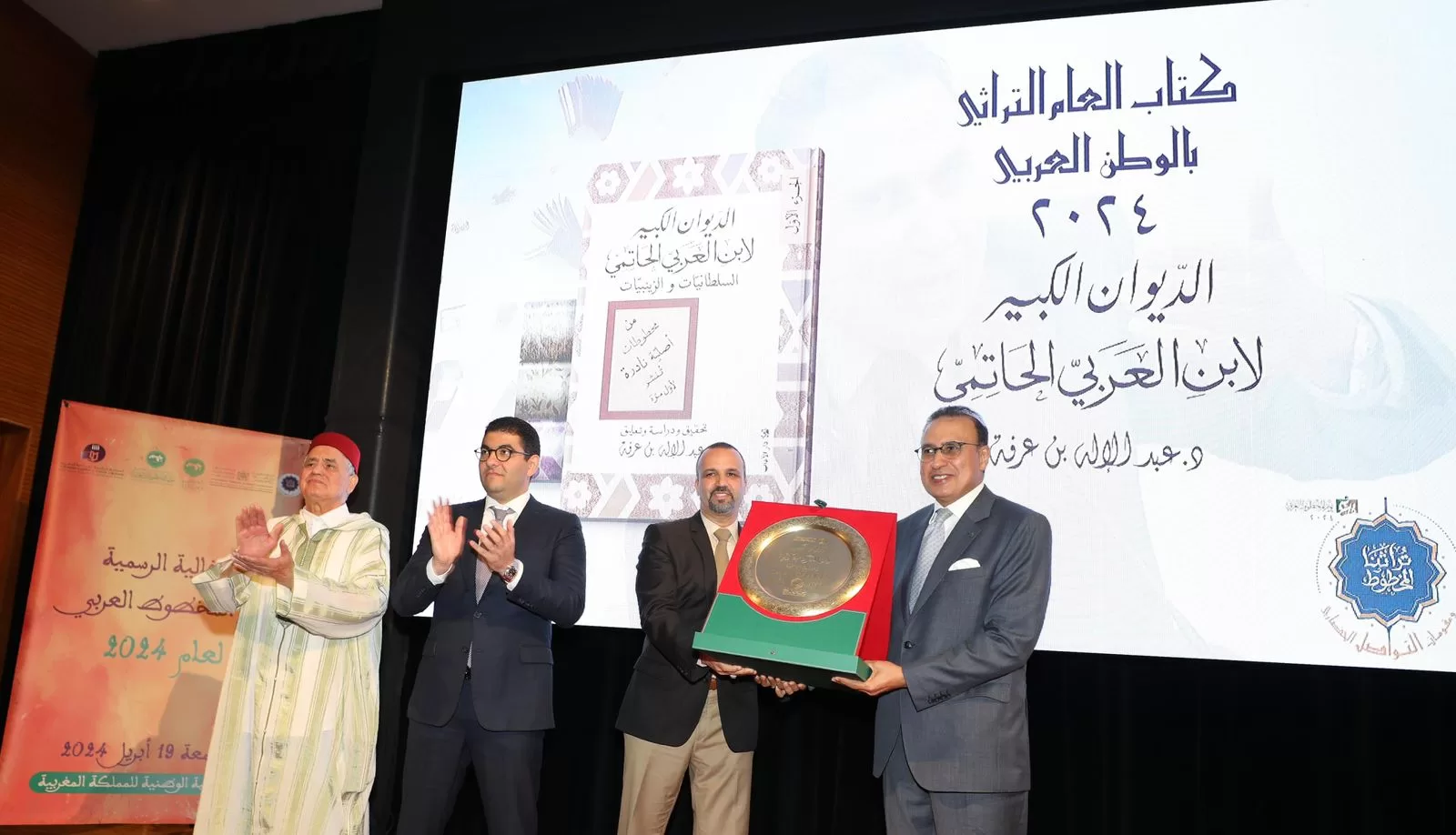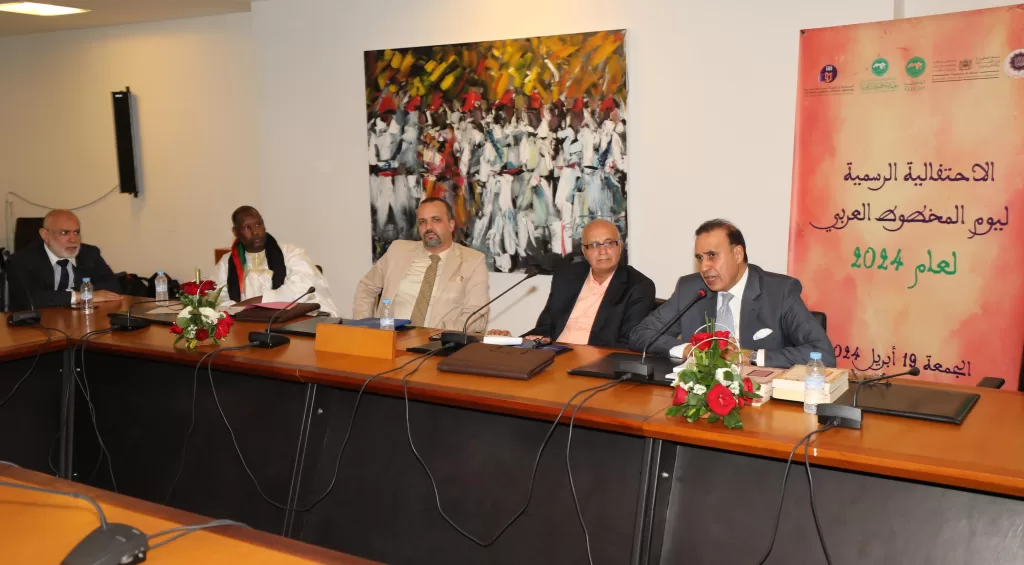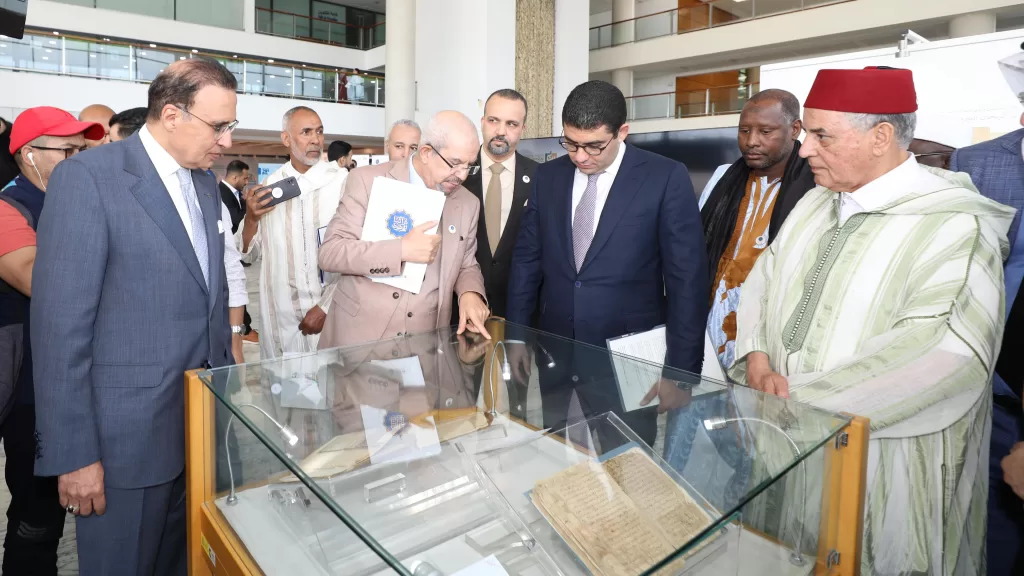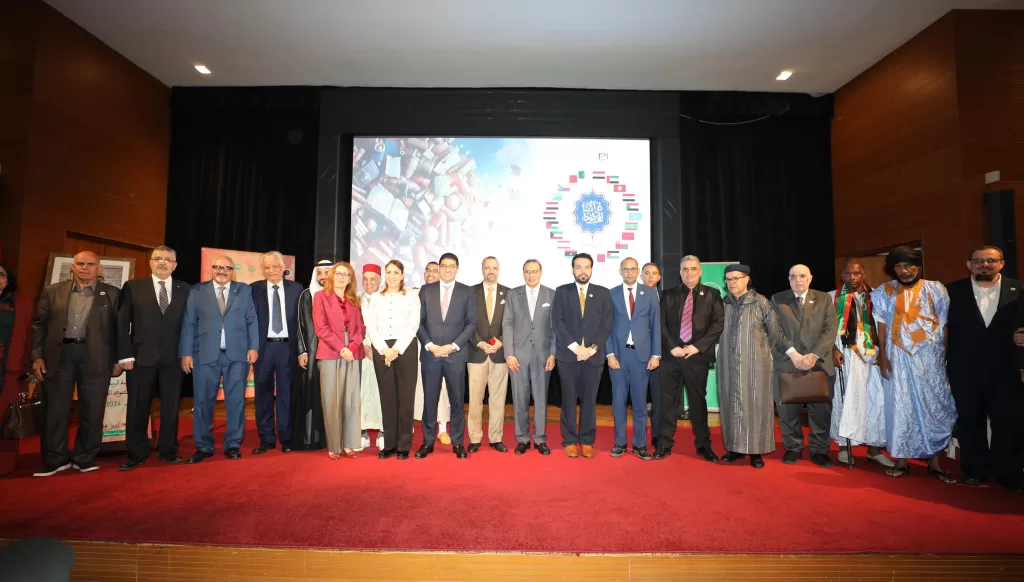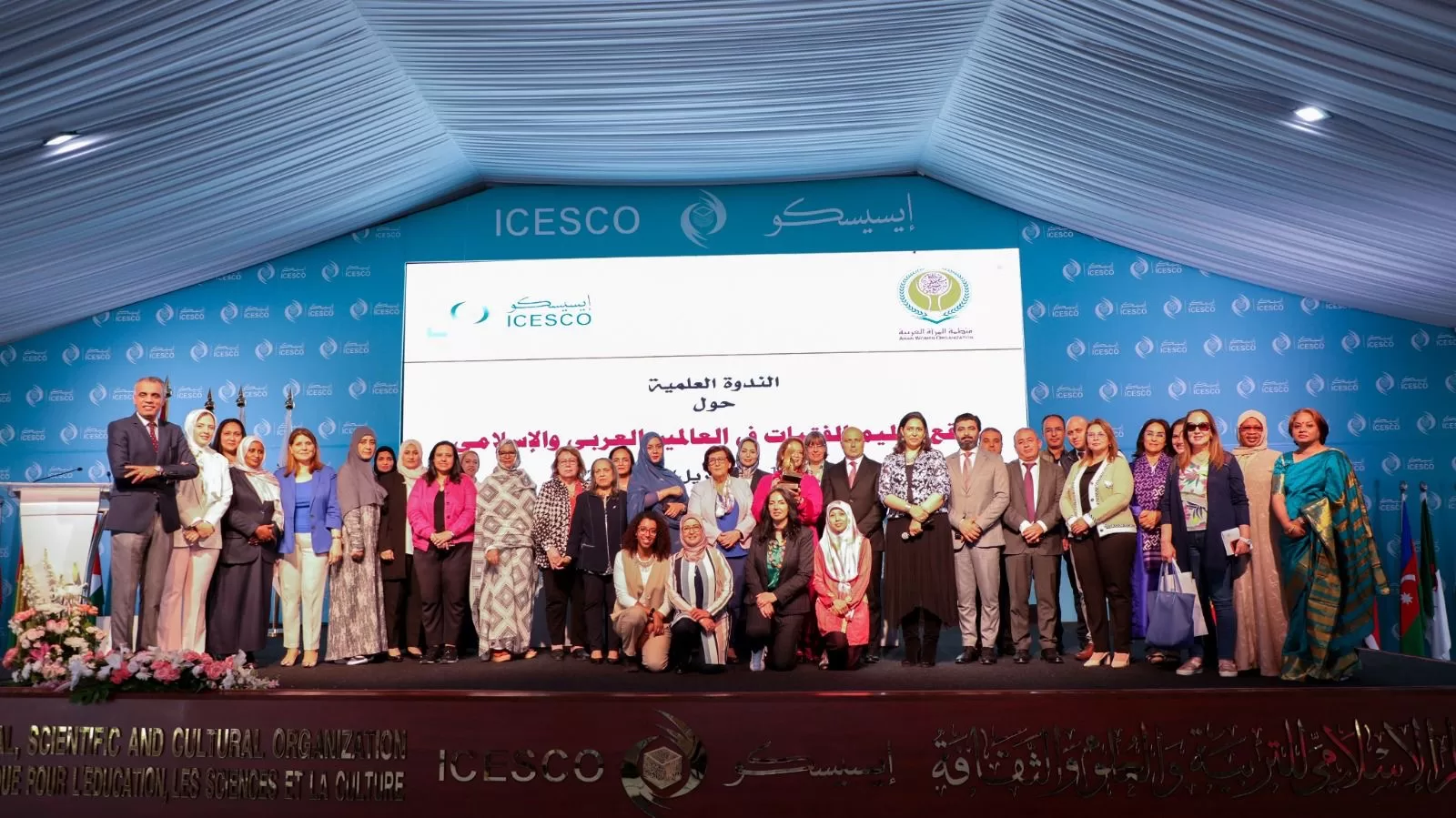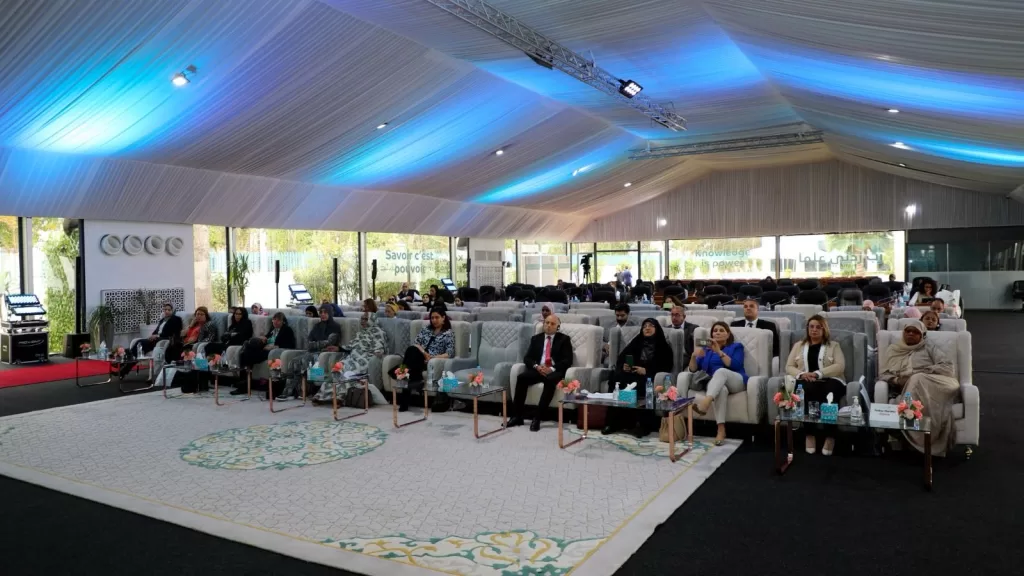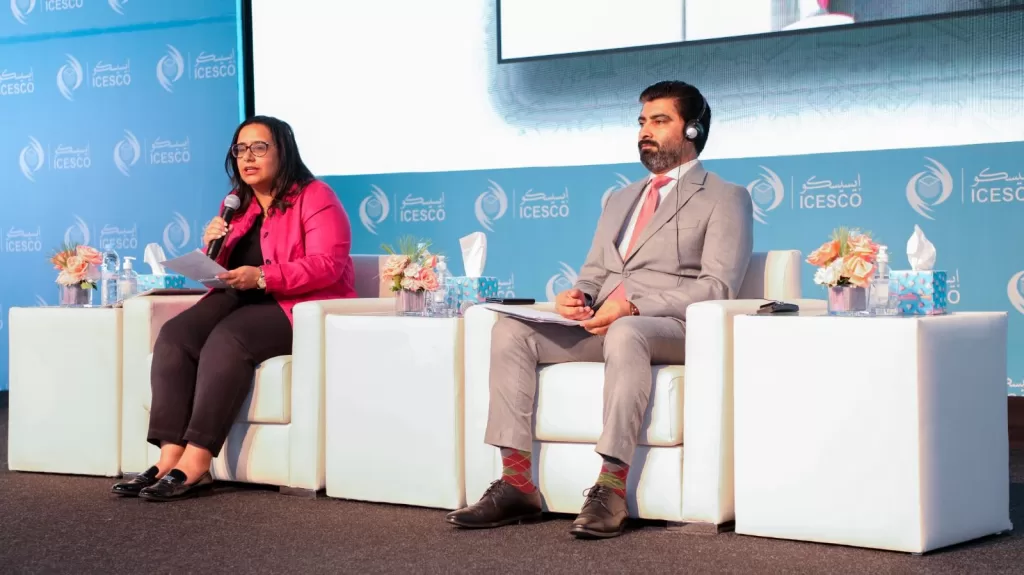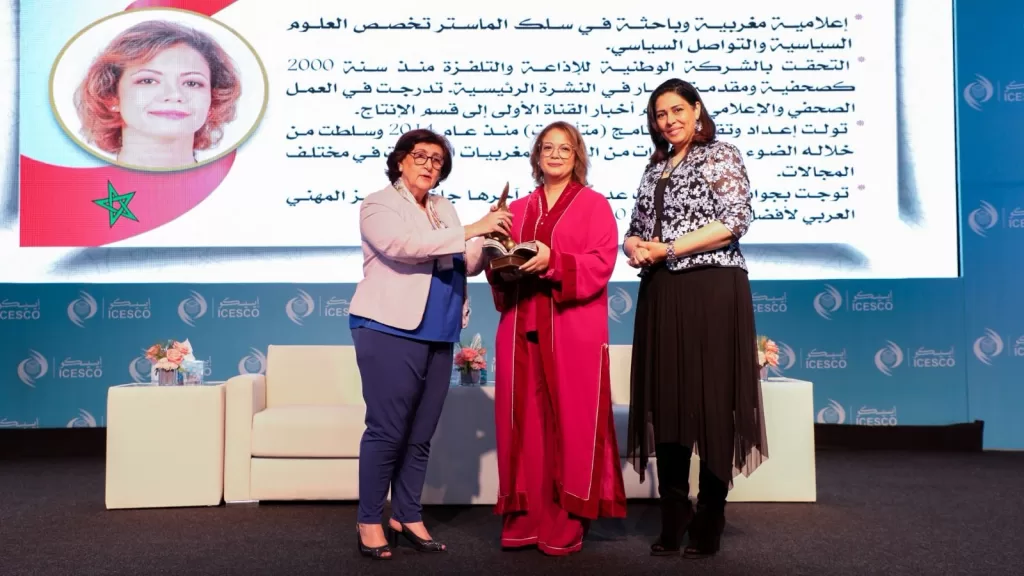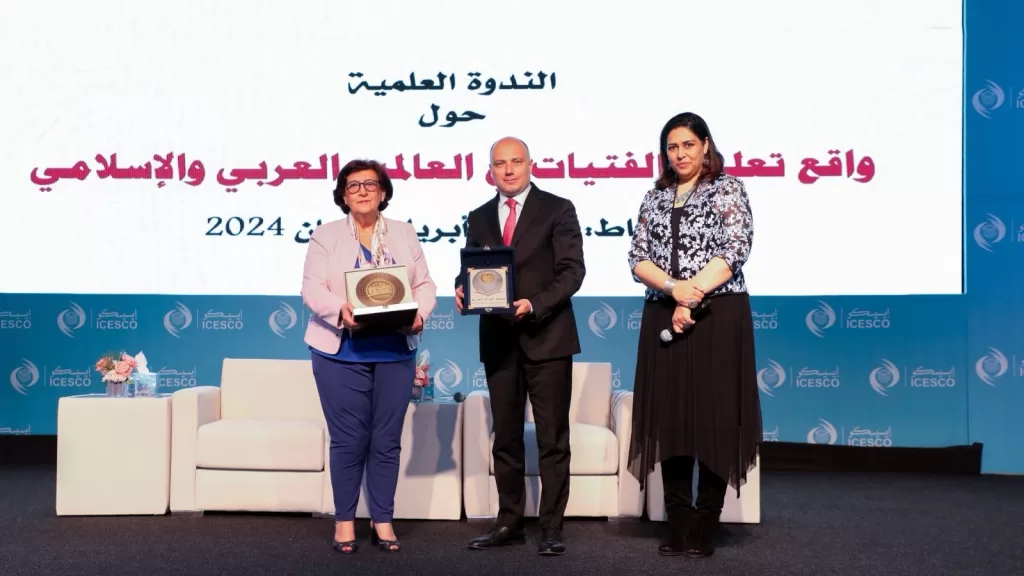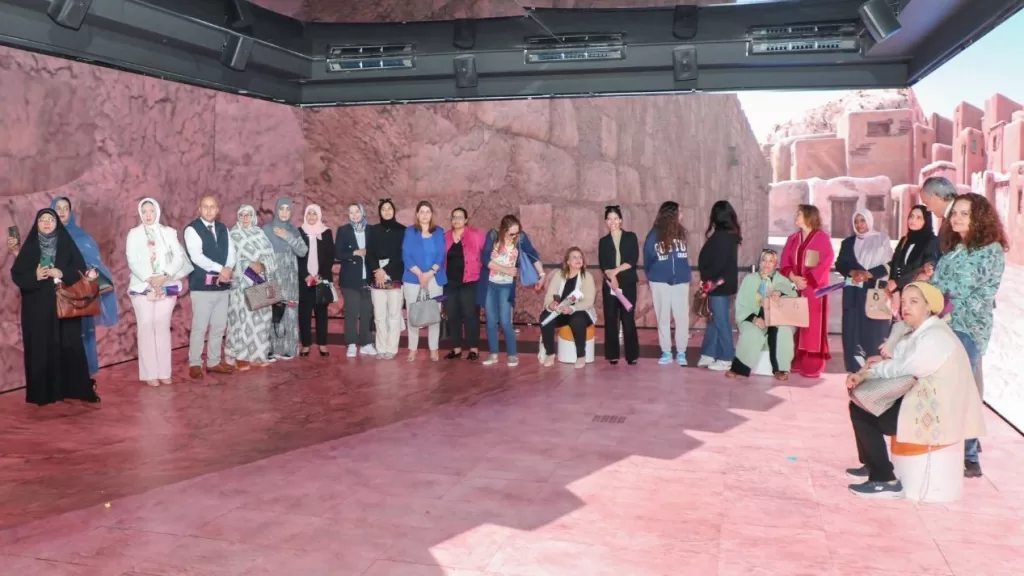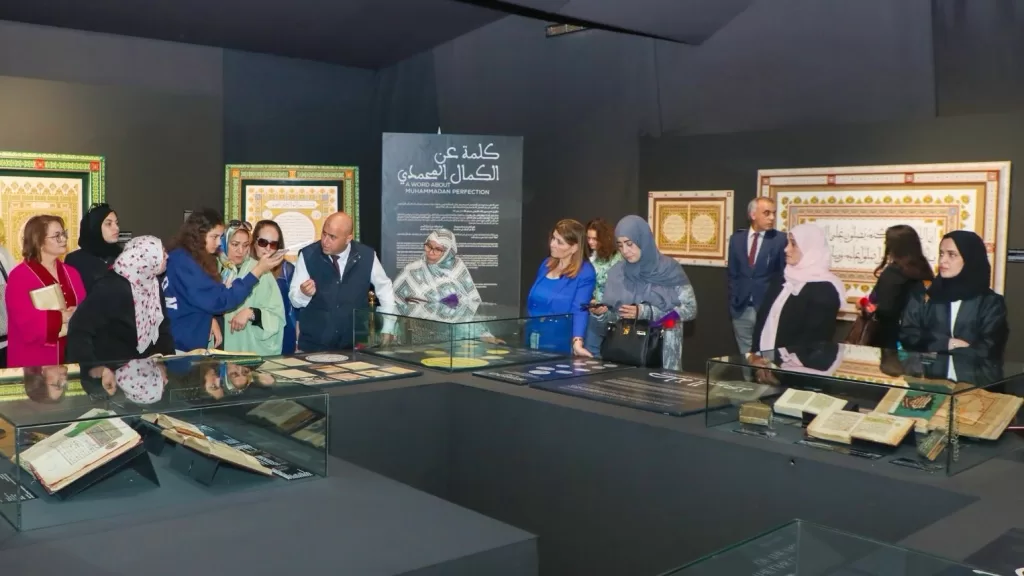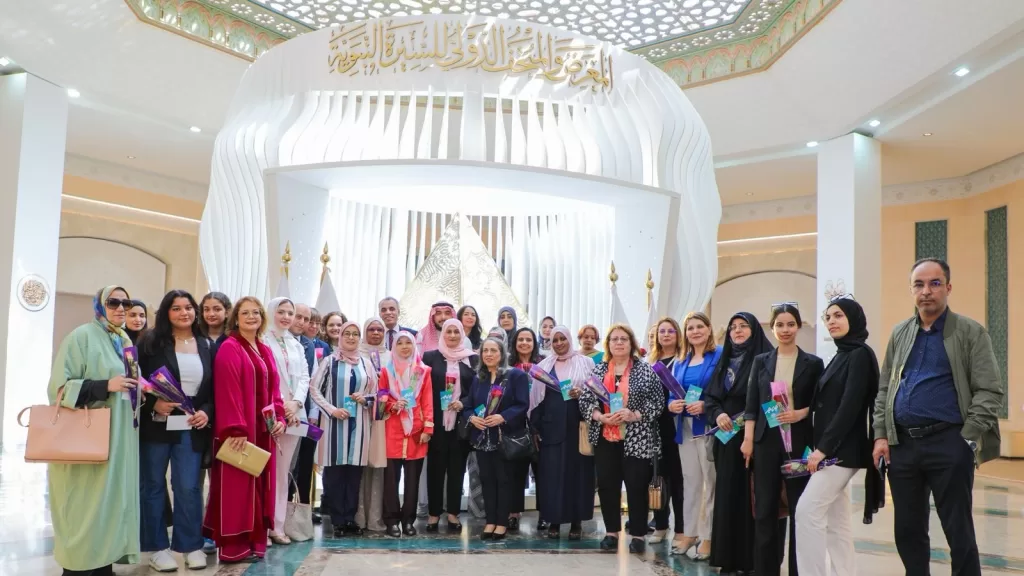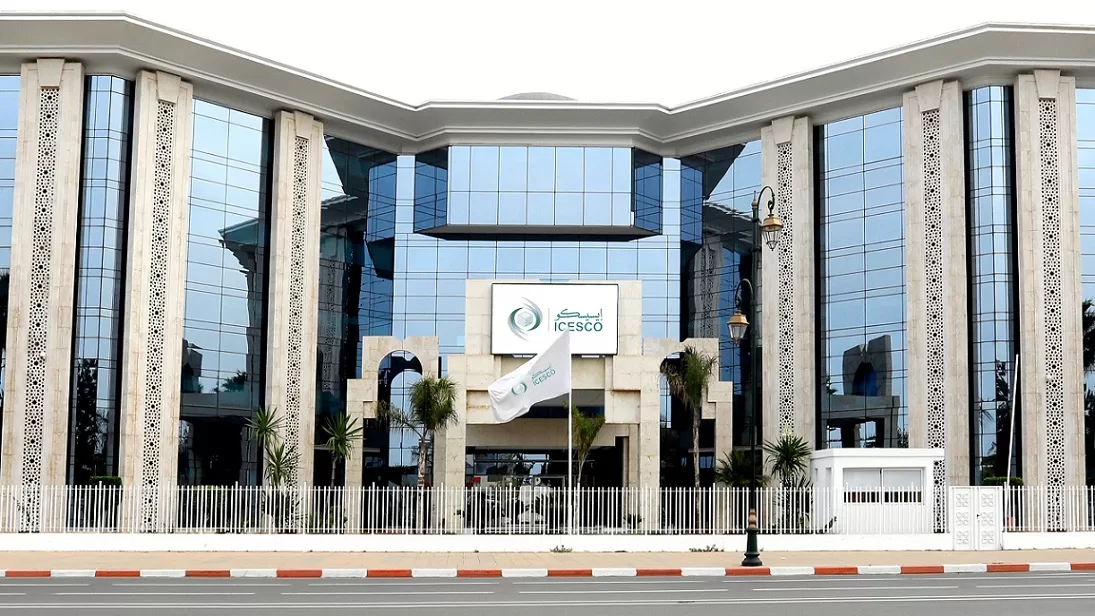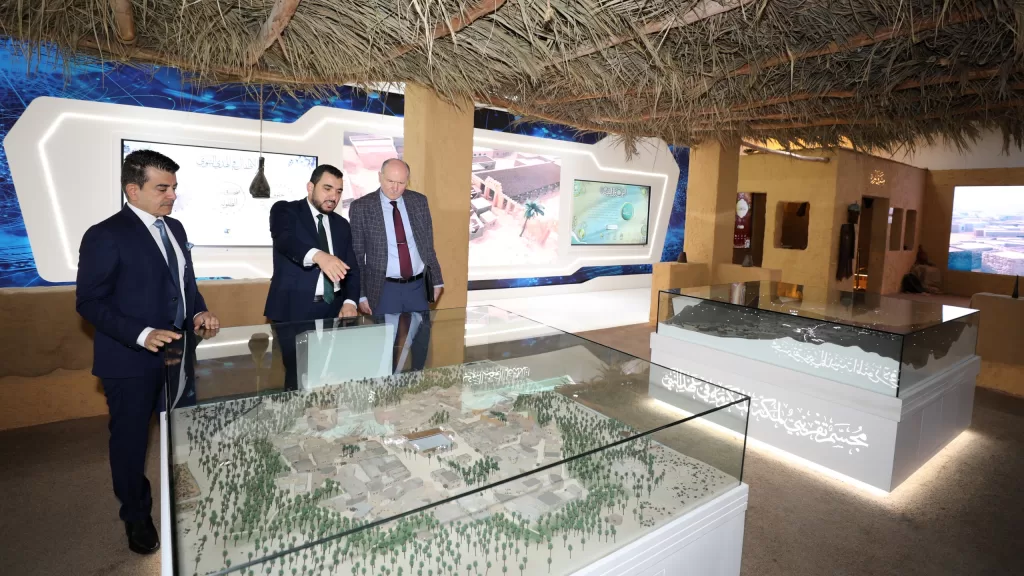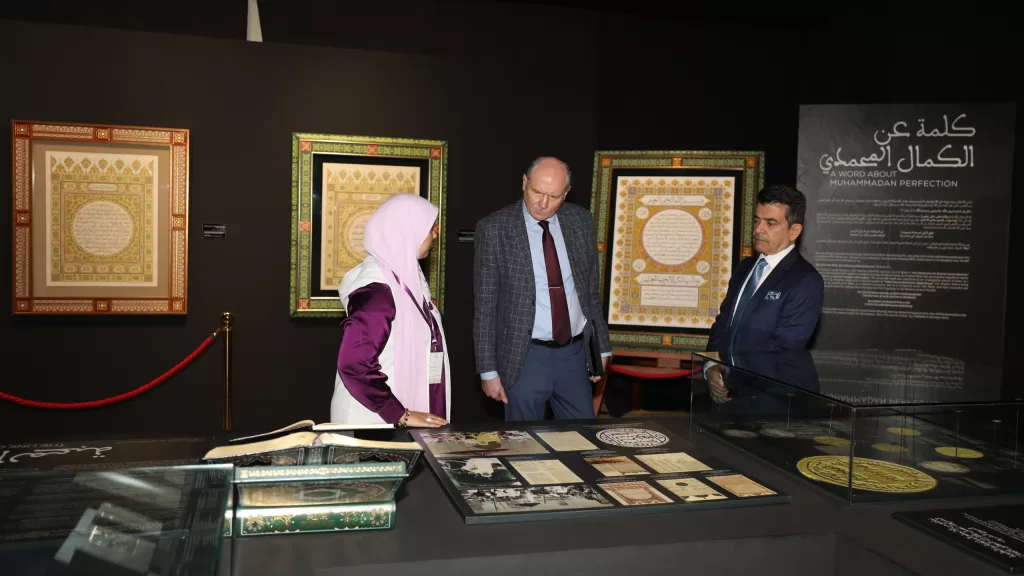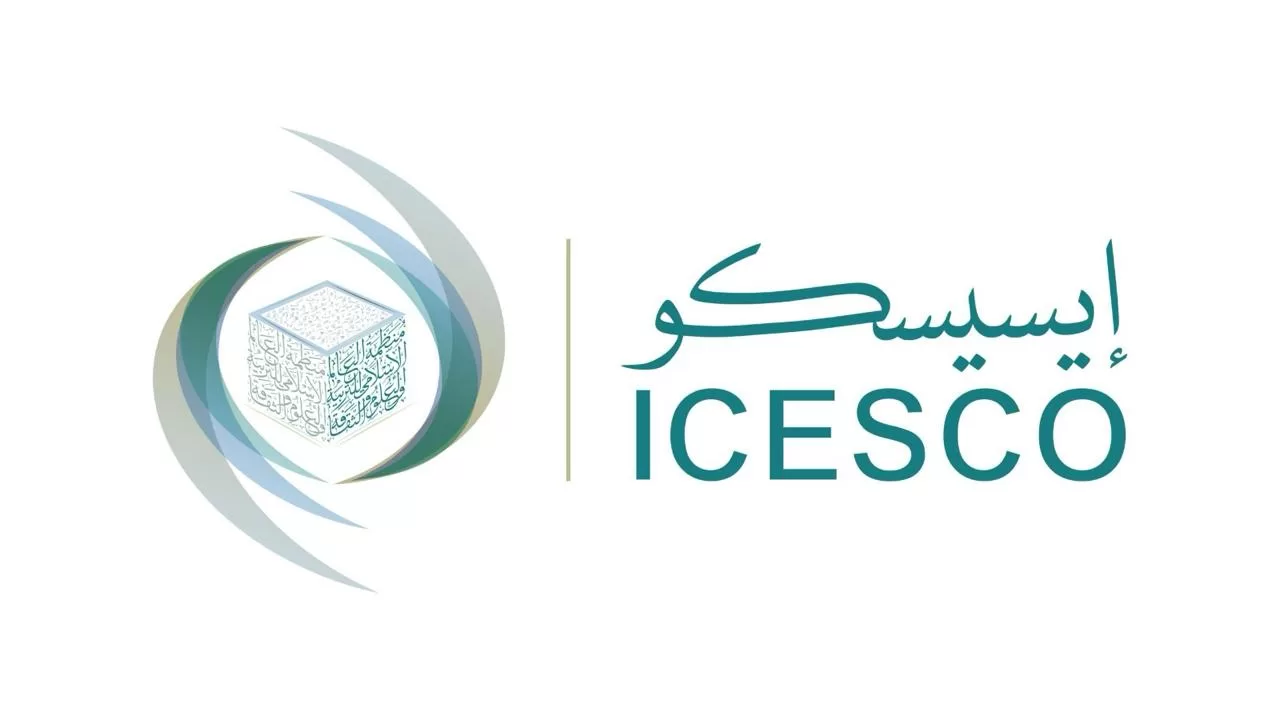In partnership with the Ministry of Youth, Culture and Communication, the National Museums Foundation, the Marrakech City Council and the National School of Architecture in Marrakesh, the Islamic World Educational, Scientific and Cultural Organization (ICESCO) launched its “ICESCO Cultural Week” in Marrakesh, under the theme, “Marrakech: City of Heritage, Art and Culture”. The event is part of the celebration of the Red City as the Culture Capital in the Islamic World for 2024, under the High Patronage of His Majesty King Mohammed VI, may Allah assist him.
Held on Saturday, April 20, 2024, at the Museum of Intangible Heritage in Jemaa El Fna Square, the opening ceremony saw the participation of a number of senior officials, academics and high-level figures from the fields of thought, culture and art.
At the outset, Mr. Mehdi Qotbi, Director of the National Museums Foundation of the Kingdom of Morocco, stated that the celebration of Marrakech as Culture Capital in the Islamic World emphasizes the city’s uniqueness, ancient heritage, and cultural elements, which have made it one of the key historical cities in the world. Mr. Qotbi also commended the aspects of cooperation between ICESCO and the Foundation, which yielded remarkable outcomes, notably the Intangible Heritage Museum in Marrakech.
For his part, Dr. Mohamed Zinelabidine, Head of ICESCO’s Culture and Communication Sector, stressed the attention the Organization accords to Marrakech, manifested in its selection as Culture Capital in the Islamic World, to highlight its cultural manifestations, art expressions and tourism potential which has made it an international destination.
The ICESCO official added that the Organization has inscribed a number of Marrakech cultural elements on its Islamic World Heritage Lists, including the Jamaa El Fna Square, Malhun, orange blossom water distillation techniques, and Dakka Merrakshia.
Dr. Weber Ndoro, Director of the Center of Heritage in the Islamic World, stressed the importance of heritage as a major component of human civilization, providing an overview on its elements, development, and role of communities in its promotion and preservation as a legacy for successive generations. Dr. Ndoro also discussed the Organization’s efforts in preserving and promoting the heritage of the Islamic world, casting light on the major projects it implements in cooperation with its Member States.
Speaking next, Mr. Bilal Chebbi, Dr. Mohamed Aba Ousman and Dr. Idham Muhammad Hanash, experts at ICESCO’s Culture and Communication Sector, gave detailed presentations on the main activities and events of the Cultural Week. They also reviewed the Organization’s programs on museums in Africa and the Islamic world, and highlighted the key features of Marrakech’s architectural heritage, especially Islamic architecture.
Ms. Hanae Jerjou, Governor of Jemaa El Fna in Marrakech and its Museum of Intangible Heritage, gave a presentation on the Museum’s sections and collections, and a tour of its corridors to the audience.
This was followed by the presentation of the book and platform project, “Marrakech, a City of Museums: From History to Cultural Dialogue and Heritage Education”.
Participants in the launch of the ICESCO Cultural Week in Marrakech were introduced to the handmade goods displayed by artisanal shops along the streets and alleys between Jemaa El Fna Square and Dar El Bacha Museum, which the participants visited during their tour. They also took part in a workshop and exhibition organized by ICESCO for young artists in cooperation with the National School of Architecture in Marrakech, moderated by Dr. Sandra Rey, Professor of Art at the University of Rio Grande in Brazil.
The ICESCO Cultural Week features a variety of activities and seminars at the Faculty of Arts and Humanities of Qadi Ayyad University and the National School of Architecture in Marrakech, aiming to highlight the diversity of the Red City’s heritage, the richness of its culture, and the uniqueness of its Islamic architecture.
